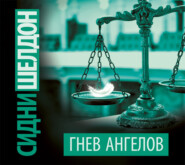По всем вопросам обращайтесь на: info@litportal.ru
(©) 2003-2025.
✖
The Other Side of Midnight
Автор
Год написания книги
2018
Настройки чтения
Размер шрифта
Высота строк
Поля
On Saturday, June 14, 1940, the German Fifth Army marched into a stunned Paris. The Maginot Line had turned out to be the biggest fiasco in the history of warfare and France lay defenceless before one of the most powerful military machines the world had ever known.
The day had begun with a strange grey pall that lay over the city, a terrifying cloud of unknown origin. For the last forty-eight hours sounds of intermittent gunfire had broken the unnatural, frightened silence of Paris. The roar of the cannons was outside the city, but the echoes reverberated into the heart of Paris. There had been a flood of rumours carried like a tidal wave over the radio, in newspapers and by word of mouth. The Boche were invading the French coast … London had been destroyed … Hitler had reached an accord with the British government … The Germans were going to wipe out Paris with a deadly new bomb. At first each rumour had been taken as gospel, creating its own panic, but constant crises finally exert a soporific affect, as though the mind and body, unable to absorb any further terror, retreat into a protective shell of apathy. Now the rumour mills had ground to a complete halt, newspaper presses had stopped printing and radio stations had stopped broadcasting. Human instinct had taken over from the machines, and the Parisians sensed that this was a day of decision. The grey cloud was an omen.
And then the German locusts began to swarm in.
Suddenly Paris was a city filled with foreign uniforms and alien people, speaking a strange, guttural tongue, speeding down the wide, tree-lined avenues in large Mercedes limousines flying Nazi flags or pushing their way along the sidewalks that now belonged to them. They were truly the über Mensch, and it was their destiny to conquer and rule the world.
Within two weeks an amazing transformation had taken place. Signs in German appeared everywhere. Statues of French heroes had been knocked down and the swastika flew from all state buildings. German efforts to eradicate everything Gallic reached ridiculous proportions. The markings on hot and cold water taps were changed from chaud and froid to heiss and kalt. The place de Broglie in Strasbourg became Adolf Hitler Platz. Statues of Lafayette, Ney and Kleber were dynamited by squadrons of Nazis. Inscriptions on the monuments for the dead were replaced by ‘GEFALLEN FUR DEUTSCHLAND.’
The German occupation troops were enjoying themselves. While French food was too rich and covered with too many sauces, it was still a pleasant change from war rations. The soldiers neither knew nor cared that Paris was the city of Baudelaire, Dumas and Molière. To them Paris was a garish, eager, overpainted whore with her skirts pulled up over her hips and they raped her, each in his own way. The Storm-troopers forced young French girls to go to bed with them, sometimes at the point of a bayonet, while their leaders like Goering and Himmler raped the Louvre and the rich private estates they greedily confiscated from the newly created enemies of the Reich.
If French corruption and opportunism rose to the surface in the time of France’s crisis, so did the heroism. One of the underground’s secret weapons was the Pompiers, the fire department, which in France is under the jurisdiction of the army. The Germans had confiscated dozens of buildings for the use of the army, the Gestapo and various ministries, and the location of these buildings was of course no secret. At an underground resistance headquarters in St Remy resistance leaders pored over large maps detailing the location of each building. Experts were then assigned their targets, and the following day a speeding car or an innocent-looking bicyclist would pass by one of the buildings and fling a homemade bomb through the window. Up to that point the damage was slight. The ingenuity of the plan lay in what followed next.
The Germans would call in the Pompiers to put out the fire. Now it is instinctive in all countries that when there is a conflagration the firemen are in complete charge: And so it was in Paris. The Pompiers raced into the building while the Germans stood meekly aside and watched them destroy everything in sight with high-pressure hoses, axes and – when the opportunity presented itself – their own incendiary bombs. In this way the underground managed to destroy priceless German records locked away in the fortresses of the Wehrmacht and the Gestapo. It took almost six months for the German high command to figure out what was happening, and by that time irreparable damage had been done. The Gestapo could prove nothing, but every member of the Pompiers was rounded up and sent to the Russian front to fight.
There was a shortage of everything from food to soap. There was no gasoline, no meat, no dairy products. The Germans had confiscated everything. Stores that carried luxury goods stayed open, but their only customers were the soldiers who paid in occupation marks which were identical with the regular marks except that they lacked the white strip at the edge and the printed promise to pay was not signed.
‘Who will redeem these?’ the French shopkeepers moaned.
And the Germans grinned, ‘The Bank of England.’
Not all Frenchmen suffered, however. For those with money and connections there was always the Black Market.
Noelle Page’s life was changed very little by the occupation. She was working as a model at Chanel’s on rue Canbon in a hundred-and-fifty-year-old greystone building that looked ordinary on the outside, but was very smartly decorated within. The war, like all wars, had created overnight millionaires, and there was no shortage of customers. The propositions that came to Noelle were more numerous than ever; the only difference was that most of them were now in German. When she was not working, she would sit for hours at small outdoor cafés on the Champs-Élysées, or on the Left Bank near the Pont Neuf. There were hundreds of men in German uniforms, many of them with young French girls. The French civilian men were either too old or lame, and Noelle supposed that the younger ones had been sent to camps or conscripted for military duty. She could tell the Germans at a glance, even when they were not in uniform. They had a look of arrogance stamped on their faces, the look that conquerors have had since the days of Alexander and Hadrian. Noelle did not hate them, nor did she like them. They simply did not touch her.
She was filled with a busy inner life, carefully planning out each move. She knew exactly what her goal was, and she knew that nothing could stop her. As soon as she was able to afford it, she engaged a private detective who had handled a divorce for a model with whom she worked. The detective’s name was Christian Barbet, and he operated out of a small, shabby office on the rue St Lazare. The sign on the door read:
ENQUÊTES
PRIVÉES ET COMMERCIALES
RECHERCHES
RENSEIGNEMENTS
CONFIDENTIELS
FILATURES
PREUVES
The sign was almost larger than the office. Barbet was short and bald with yellow, broken teeth, narrow squinting eyes and nicotine-stained fingers.
‘What can I do for you?’ he asked Noelle.
‘I want information about someone in England.’
He blinked suspiciously. ‘What kind of information?’
‘Anything. Whether he’s married, who he sees. Anything at all. I want to start a scrapbook on him.’
Barbet gingerly scratched his crotch and stared at her.
‘Is he an Englishman?’
‘An American. He’s a pilot with the Eagle Squadron of the RAF.’
Barbet rubbed the top of his bald head, uneasily. ‘I don’t know,’ he grumbled. ‘We’re at war. If they caught me trying to get information out of England about a flyer —’
His voice trailed off and he shrugged expressively. ‘The Germans shoot first and ask questions afterwards.’
‘I don’t want any military information,’ Noelle assured him. She opened her purse and took out a wad of franc notes. Barbet studied them hungrily.
‘I have connections in England,’ he said cautiously, ‘but it will be expensive.’
And so it began. It was three months before the little detective telephoned Noelle. She went to his office, and her first words were: ‘Is he alive?’ and when Barbet nodded, her body sagged with relief and Barbet thought, It must be wonderful to have someone love you that much.
‘Your boyfriend has been transferred,’ Barbet told her.
‘Where?’
He looked down at a pad on his desk. ‘He was attached to the 609th Squadron of the RAF. He’s been transferred to the 121st Squadron at Martlesham East, in East Anglia. He’s flying Hurri —’
‘I don’t care about that.’
‘You’re paying for it,’ he said. ‘You might as well get your money’s worth.’ He looked down at his notes again. ‘He’s flying Hurricanes. Before that he was flying American Buffaloes.’
He turned over a page and added, ‘It becomes a little personal here.’
‘Go on,’ Noelle said.
Barbet shrugged. ‘There’s a list of girls he is sleeping with. I didn’t know whether you wanted —’
‘I told you – everything.’
There was a strange note in her voice that baffled him. There was something not quite normal here, something that did not ring true. Christian Barbet was a third-rate investigator handling third-rate clients, but because of that he had developed a feral instinct for truth, a nose for smelling out facts. The beautiful girl standing in his office disturbed him. At first Barbet had thought she might be trying to involve him in some kind of espionage. Then he decided that she was a deserted wife seeking evidence against her husband. He had been wrong about that, he admitted, and now he was at a loss to figure out what his client wanted or why. He handed Noelle the list of Larry Douglas’ girl friends and watched her face as she read it. She might have been reading a laundry list.
She finished and looked up. Christian Barbet was totally unprepared for her next words. ‘I’m very pleased,’ Noelle said.
He looked at her and blinked rapidly.
‘Please call me when you have something more to report.’
Long after Noelie Page had gone, Barbet sat in his office staring out the window, trying to puzzle out what his client was really after.
The theatres of Paris were beginning to boom again. The Germans attended to celebrate the glory of their victories and to show off the beautiful Frenchwomen they wore on their arms like trophies. The French attended to forget for a few hours that they were an unhappy, defeated people.
Noelle had attended the theatre in Marseille a few times, but she had seen sleazy amateur plays acted out by fourth-rate performers for indifferent audiences. The theatre in Paris was something else again. It was alive and sparkling and filled with the wit and grace of Molière, Racine and Colette. The incomparable Sacha Guitry had opened his theatre and Noelle went to see him perform. She attended a revival of Büchner’s La Morte de Danton and a play called Asmodée by a promising new young writer named François Mauriac. She went to the Comédie Française to see Pirandello’s Chacun La Verité and Rostand’s Cyrano de Bergerac. Noelle always went alone, oblivious of the admiring stares of those around her, completely lost in the drama taking place on the stage. Something in the magic that went on behind the footlights struck a responsive chord in her. She was playing a part just like the actors on stage, pretending to be something that she wasn’t, hiding behind a mask.

















